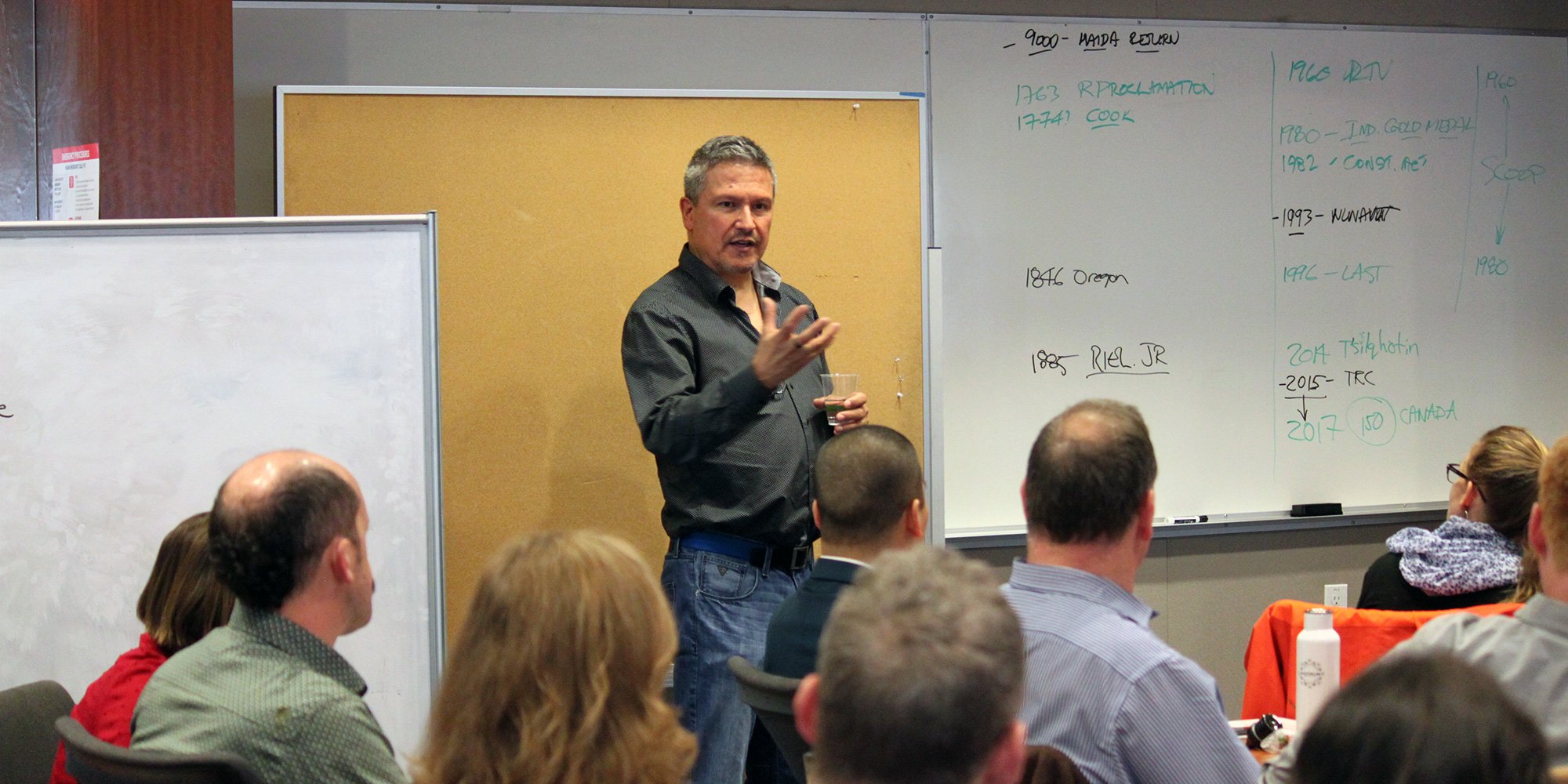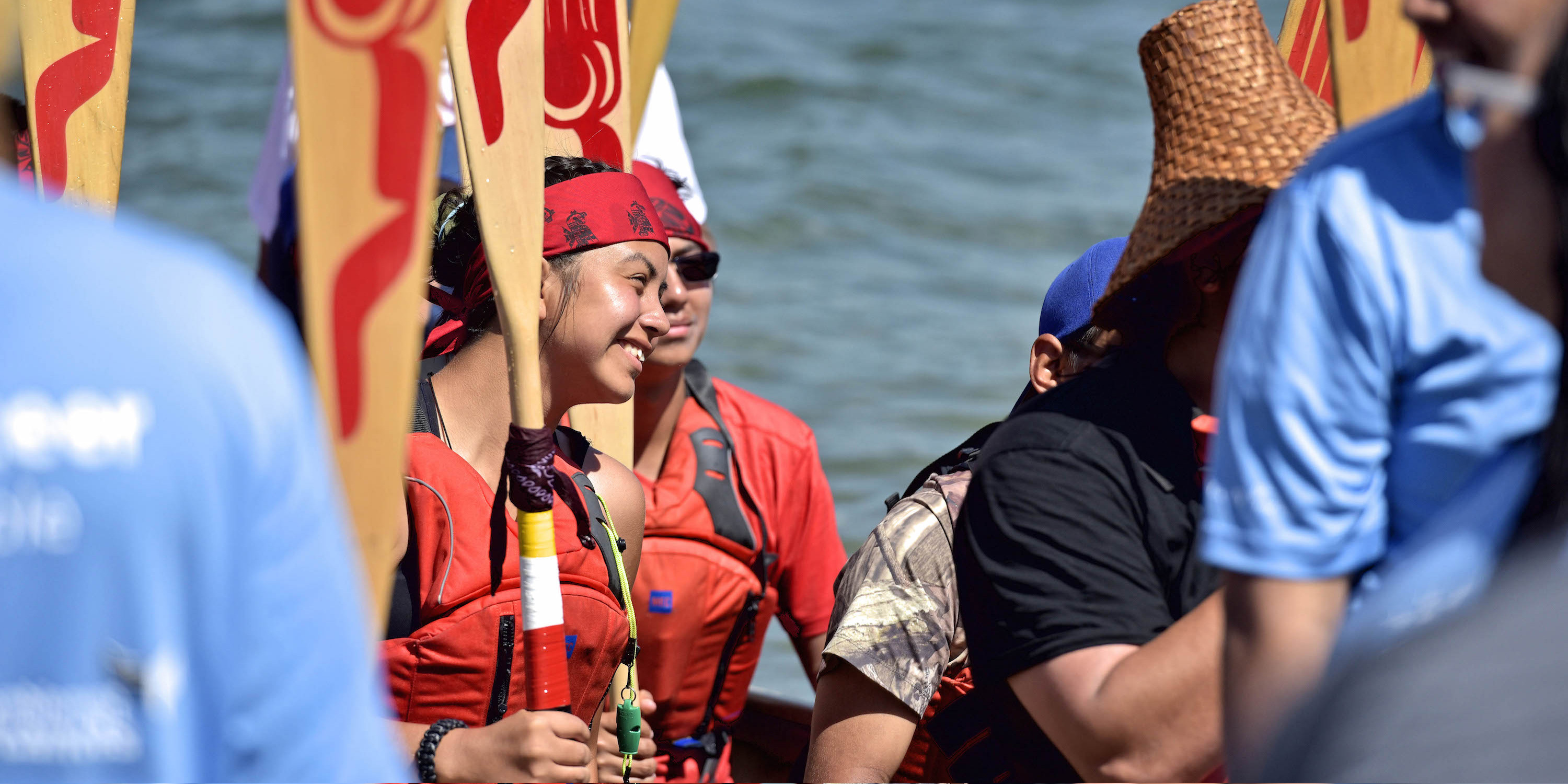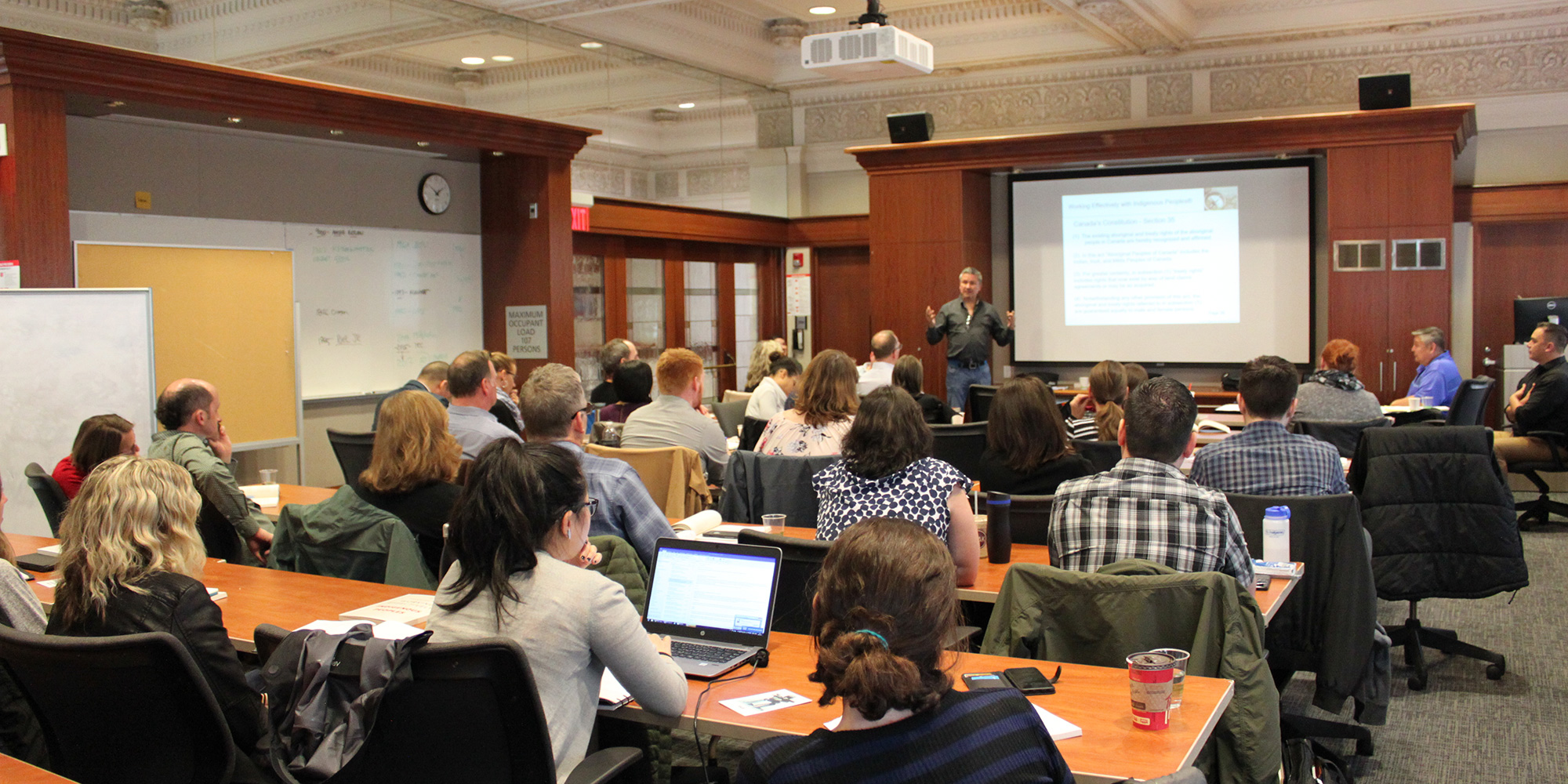Become a Mentor to Indigenous Youth as a Part of Your Reconciliation Journey
If you want to be an ally to the Indigenous community, becoming a mentor at Urban Native Youth Association (UNYA) is a great opportunity. The...

The Truth and Reconciliation Commission’s 94 Calls-to-Action (CTAs) are galvanizing the government, corporate and private sectors in Canada to learn about the wrongs of the past and work towards a better future for Indigenous and non-Indigenous Peoples. The CTAs, released in June 2015, have inadvertently triggered an opportunity for entrepreneurial types to set themselves up as Indigenous awareness and cultural competency providers. The high demand to fulfill the CTAs is creating the opportunity for “new to the field” trainers.
Calls-to-Action
In order to redress the legacy of residential schools and advance the process of Canadian reconciliation, the Truth and Reconciliation Commission makes the following Calls-to-Action.
Professional Development and Training for Public Servants
#57. We call upon federal, provincial, territorial, and municipal governments to provide education to public servants on the history of Aboriginal peoples, including the history and legacy of residential schools, the United Nations Declaration on the Rights of Indigenous Peoples, Treaties and Aboriginal rights, Indigenous law, and Aboriginal–Crown relations. This will require skills-based training in intercultural competency, conflict resolution, human rights, and anti-racism.
Business and Reconciliation
#92.iii. Provide education for management and staff on the history of Aboriginal peoples, including the history and legacy of residential schools, the United Nations Declaration on the Rights of Indigenous Peoples, Treaties and Aboriginal rights, Indigenous law, and Aboriginal–Crown relations. This will require skills-based training in intercultural competency, conflict resolution, human rights, and anti-racism. [1]
This is an important juncture in Canada’s history with Indigenous Peoples - it is an opportunity to bring awareness to non-Indigenous Peoples to the history of what transpired post-European contact that led up to residential school policies, the Indian Act and the ongoing aftermath of those policies. But, it is emotionally charged, complex information that has to be delivered in a non-confrontational manner that encourages learners to absorb it, come to terms with it, and ask questions. I meet people every day in my training sessions who have questions they want to ask but have held back because they weren’t sure if it was “safe” to ask them. More on that in bullet #4
It's also an exciting time for the future of this country now that so very many Canadians are on a quest for information. These questions are designed to help purchasers looking for the right trainer and training company.
1. Are they a certified trainer or an educator (teacher) who is providing information?
There is a difference between a teacher (provides conceptual knowledge for use possibly at a later date) and a certified trainer (provides technical how-to skills now). To put it in perspective, I like this analogy that I have borrowed from a discussion on Linkedin:
Also, some trainers may have lots of experience but no credentials as trainers and others will have credentials and no experience.
By the way, the wording in the CTAs specifies “skills-based training in intercultural competency, conflict resolution, human rights, and anti-racism”.
2. Are they full-time trainers - is this their profession?
Or are they, for example, an engagement specialist, who is doing it off the edge of their desks? They’ve picked up some knowledge along the course of their career so decided to put it all together and provide Indigenous Awareness Training. Additionally, some companies think they can save money by asking someone from in-house to train their colleagues. While it is true it would save money the hard part of this work is dealing with the occasional really emotional learner who doesn't think the employer should be doing this, and that it’s “not right or fair.”
3. What is the extent of their experience as Indigenous awareness providers?
They may have hung out their shingle 10 years ago or 20 years ago or more, but how many sessions have they actually developed and led and did they have the foundational training to get them off on the right foot? There is a difference between someone who does this four times a year on request and someone who does this 40 to 60 times.
4. What sort of environment do they provide for people to ask the tough, emotionally-charged questions?
A good trainer understands that learners need to have a safe environment free of harassment. Trainers should impartially answer the tough questions in a manner that doesn’t overwhelm people with guilt or trigger anger. An experienced, qualified trainer knows how to manage those who are in the class because they have been forced to participate - they will be able to connect with that person on some level that will open them up to accepting a different perspective than the one they have grown up believing, and they will manage to do so without humiliating that person; nor will they answer questions using foul language to emphasize a point.
5. What sort of takeaways are included in the course?
Is there a book, a pamphlet, a binder, or a FAQ sheet? The supporting material should be well-researched, current and original.
6. Is the material original? Or has it been “borrowed” and rebranded?
New to the field trainers don’t have the legacy of experience or time required to develop and field test their material so frequently model their training on that of others. Some common items that are modelled can include course descriptions, website look and feel, website pages, handouts, and more.
7. Do they claim their training is certified?
As far as we know, there isn’t a body in Canada that certifies Indigenous awareness training programs and there is no formal certification process. Many Indigenous awareness providers offer certificates so claims that a program is certified should be explored. For the record, there are a few different types of certificates, that we are aware of, such as for attendance, achievement, meeting industry standards, or certificate of completion. Some companies want a certificate for their employee's personal files to show they have completed training. Some individuals want a certificate to show potential employers that they are above the competition in the marketplace; as in "I’m an engineer like all the others but I have taken this training". But again, purchasers should know that the certificates are generally issued by the trainer.
8. Is it an incorporated or limited company?
What about a sole proprietorship? If it’s neither or none then it could provide insights about the person or company. In any circumstance, purchasers will want to know if they at least have errors and omission insurance, general liability insurance, commercial insurance, or none at all.
9. Do they have a website and is it current?
Purchasers can conduct research on the trainer on the company's website. When was the website last updated? Do they provide new information on a regular basis? Is the information vague and does it lack details? Is the terminology used current? Are you able to determine exactly what it is the training covers? Are they easy to contact and do they respond when you send them a message?
10. What is their price point in comparison to other trainers?
If it is lowball you know the provider has not done the math on what it takes to develop quality, original content and support material and market it or cover insurance costs. Lowball providers will not have factored in the travel and accommodation costs involved in delivering training to clients outside their region. If it’s your job to find a trainer for your organization, is the cheapest company the one you’re going to recommend to the Board?
11. Are there opportunities to build on the information and knowledge provided?
Learning is a lifelong endeavour. A good trainer will have more than one course as the goal is to walk with people along their continuum of education toward the goal of reconciliation.
12. Should the trainer have local knowledge?
How important is it that a trainer has knowledge of local Indigenous Peoples? For example, “my team is working with the one local community so I want local knowledge training” therefore it’s better if a trainer has local knowledge. This is true as long as the trainer has the credentials to create a safe learning environment as in how will they respond to the questions about free housing, not paying taxes, or "they should just get over it" type comments. Local knowledge also won’t help if the team is working in different regions and with different communities as local knowledge doesn't necessarily translate to other regions of a province.
There you have it. Purchasers looking for an Indigenous cultural competency trainer have choices and decisions to make when answering the simple question of "why should I take this trainer and training over other providers of training" - the above checklist should help answer that question.
I will close this article with these final thoughts:
As always, the choice is up to the purchaser.
[1] Honouring the Truth, Reconciling for the Future, Truth and Reconciliation Commission summary report
Featured photo: Working Effectively With Indigenous Peoples® - In-Person Training

If you want to be an ally to the Indigenous community, becoming a mentor at Urban Native Youth Association (UNYA) is a great opportunity. The...

It has been over three years (June 2, 2015) now since the Truth and Reconciliation Commission (TRC) of Canada released its summary report and 94...

In this segment from his presentation at the Expanding Our Knowledge Conference, Chief Dr. Joseph took questions from the audience on reconciliation...